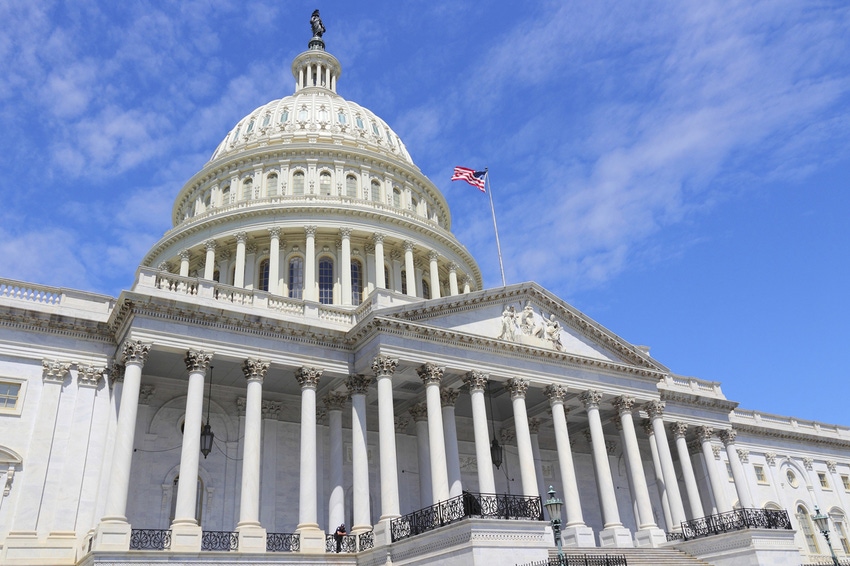Dairy safety net gets $1 billion boost, and partial payments allowed under livestock indemnity program.

The bipartisan budget deal reached by senators on Wednesday offers needed assistance to struggling dairy producers as well as to livestock producers affected by recent disasters.
Since 2014, dairy prices have dropped by more than a third, and without a reliable safety net, dairy farmers have struggled.
The bipartisan Senate budget agreement will provide more than $1 billion to support dairy farmers. Dairy provisions include removal of the livestock cap that currently limits producers’ participation in the Livestock Gross Margin (LGM) Program and improvements to the Margin Protection Program (MPP).
Senate Agriculture Committee ranking member Debbie Stabenow (D., Mich.) has been working hard to try to include a fix for dairy producers as well as help lay the groundwork for future farm bill negotiations with a higher budget baseline.
“This is the support that dairy farmers in Michigan and across the country have been waiting for,” Stabenow said. “Thanks to our bipartisan efforts in the Senate, dairy farmers will get much-needed relief as they recover from tough economic times. I look forward to building on this progress in the 2018 farm bill.”
Specifically, the bill eliminates or slashes premiums by as much as 80% for small and medium dairy farms. It does this by raising the catastrophic coverage level from $4.00 to $5.00 for the first tier of covered production for all dairy farmers. It also adjusts the first tier of covered production to include every dairy farmer’s first 5 million lb. of annual milk production (about 217 cows) instead of 4 million lb. -- a recognition of the growth in herd sizes across the country. The agreement reduces the premium rates, effective immediately, for every producer’s first 5 million lb. of production, to better enable dairy farmers to afford the higher levels of coverage that will provide more meaningful protection against low margins.
It also makes the program more responsive to drops in prices and increases in feed costs and triggers payments more quickly. It modifies the margin calculation to a monthly (from bimonthly) basis to make the program more accurate and responsive to producers in difficult months. The bill provides increased flexibility as it offers an immediate chance to sign up or change coverage levels for 2018.
Another major component of the budget deal for dairy producers removes the $20 million cap on all livestock insurance, including the LGM Program. This will allow USDA to develop a wider variety of additional risk management tools that will be especially important for larger dairy producers and can complement the MPP.
National Milk Producers Federation president and chief executive officer Jim Mulhern said the proposed dairy policy reforms included in the newly unveiled congressional disaster assistance package are “much-needed improvements to the dairy safety net” and come at a time when many of America’s dairy farmers are struggling financially after a third year of stagnant prices.
Mulhern commended Reps. Mike Conaway (R., Texas) and Collin Peterson (D., Minn.) for crafting important language to remove the existing cap on livestock insurance products, including the LGM-Dairy program. "This will give dairy farmers the opportunity to access a variety of additional risk management tools that can complement MPP, and it garnered bipartisan support from our Senate allies. Taken together, these changes will provide important risk management tools for dairy farm operations of all sizes,” Mulhern said.
He also applauded the work by Stabenow and Sen. Patrick Leahy (D., Vt.) for spearheading "the badly needs reforms to the MPP, which will make the program a more effective safety net for dairy producers.”
Livestock disaster assistance
A bill by Sen. Jerry Moran (R., Kan.) that allows for partial payments through the Livestock Indemnity Program (LIP) for injured animals was expanded, as was his proposal to double the LIP payment limit. The disaster assistance legislation allows partial payments and eliminates the LIP payment limit.
This will be a retroactive change for 2017, meaning that farmers and ranchers across the country who lost cattle during natural disasters in 2017 will be aided by the program changes.
“Following last year’s wildfires, many of our nation’s farmers and ranchers experienced devastating losses that crippled their ability to do what they do best: feed the American people,” Moran said. “This is an extraordinary situation that requires an extraordinary response, and that’s why we’re making changes to the Livestock Indemnity Program to make it more effective and increase support for our ag community."
Moran’s bills were introduced based on conversations he had with Kansans who lost their land and cattle in the March wildfires, but this will also be welcome news for those affected by wildfires in California and others across the country.
“I’m pleased that many of the ranchers affected by the southwest Kansas wildfires last year -- especially those who suffered the greatest losses -- will receive much-needed additional assistance so they can continue their efforts to rebuild, which are still taking place to this day,” Moran noted.
About the Author(s)
You May Also Like




.png?width=300&auto=webp&quality=80&disable=upscale)
